February 17 stands as one of history’s most eventful days, witnessing the rise and fall of empires, groundbreaking discoveries, and moments that shaped our modern world across centuries of human achievement.

Politics and Government Events on February 17
1905 – Russian Revolutionary Assassination in Moscow Kremlin
Socialist Revolutionary Ivan Kalyayev assassinated Grand Duke Sergei Alexandrovich of Russia within the heavily fortified Moscow Kremlin walls. The dramatic killing struck at the heart of Tsarist power during the turbulent 1905 Revolution period.
The assassination demonstrated the revolutionary movement’s ability to penetrate even the most secure imperial strongholds. This bold act intensified the political crisis that would eventually lead to the fall of the Romanov dynasty.
1949 – First President of Israel Takes Office
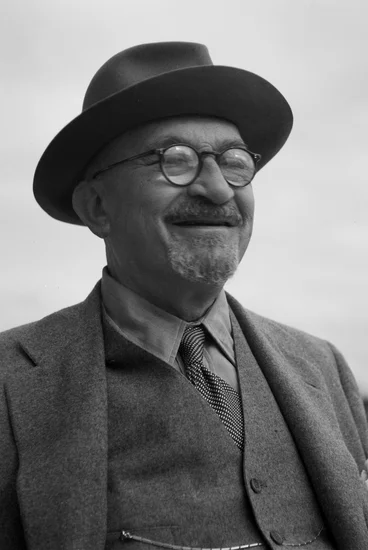
Chaim Weizmann officially began his historic term as Israel’s first President, marking a pivotal moment in the young nation’s formation. The renowned scientist and diplomat brought international credibility to the newly established state.
Weizmann’s presidency helped legitimize Israel’s position among world nations during its crucial early years. His scientific background and diplomatic experience proved invaluable in navigating complex international relationships.
1964 – Supreme Court Mandates Equal Congressional Districts
The Supreme Court delivered its landmark ruling in Wesberry v. Sanders, establishing the principle of equal population in congressional districts. This decision fundamentally transformed American electoral representation and voting rights.
The ruling enforced the constitutional principle of “one person, one vote” across all congressional districts. This judicial mandate reshaped political boundaries and ensured more equitable representation for American voters.
1964 – Gabonese President Overthrown in Military Coup

Military forces toppled Gabonese President Léon M’ba in a swift coup, installing rival politician Jean-Hilaire Aubame as the new leader. The dramatic power shift highlighted the political instability plaguing many newly independent African nations.
The coup reflected broader struggles between traditional leadership and modern political movements across post-colonial Africa. International powers closely monitored the situation as regional stability hung in the balance.
2008 – Kosovo Declares Independence from Serbia
Kosovo’s parliament unanimously declared independence from Serbia, creating Europe’s newest sovereign state amid international controversy. The historic proclamation followed years of ethnic conflict and international intervention in the Balkans.
The declaration triggered immediate diplomatic recognition from major Western powers while facing fierce opposition from Serbia and Russia. This pivotal moment reshaped Balkan politics and tested international diplomatic relationships.
Military and Naval History on February 17
1944 – Battle of Eniwetok Commences in Pacific Theater
American forces launched their assault on Eniwetok Atoll, beginning a crucial World War II Pacific campaign that would conclude with Allied victory on February 22. The strategic operation aimed to capture Japan’s heavily fortified island stronghold.
The battle represented a critical step in the American island-hopping strategy toward Japan’s home islands. Success at Eniwetok would provide vital airfields and naval bases for subsequent operations against Japanese positions.
1944 – Operation Hailstone Devastates Japanese Naval Base
U.S. naval forces launched the massive Operation Hailstone against Truk Lagoon, Japan’s primary Pacific naval base, in support of the Eniwetok invasion. The coordinated air, surface, and submarine attack crippled Japanese naval capabilities in the central Pacific.
The operation destroyed numerous Japanese vessels and aircraft while eliminating Truk as an effective military base. This devastating blow significantly weakened Japan’s ability to defend its Pacific island territories.
1979 – Sino-Vietnamese War Erupts
Chinese forces crossed the border into Vietnam, initiating a brief but intense conflict that would reshape Southeast Asian geopolitics. The war stemmed from Vietnam’s invasion of Cambodia and broader regional power struggles.
The conflict demonstrated the complex relationships between communist nations despite their shared ideological foundations. Both sides suffered significant casualties before reaching a ceasefire agreement several weeks later.
1991 – Armenian Forces Massacre Azerbaijani Civilians
Armenian troops killed more than 20 Azerbaijani civilians during the capture of Garadaghly in the escalating Nagorno-Karabakh War. The massacre intensified ethnic hatred between Armenian and Azerbaijani communities.
This tragic event exemplified the brutal nature of the conflict that would claim thousands of lives. The massacre became a rallying point for Azerbaijani resistance against Armenian territorial claims.
Science and Discovery Milestones on February 17
1959 – First Weather Satellite Launched into Orbit
Project Vanguard successfully launched Vanguard 2, the world’s first weather satellite designed to measure global cloud-cover distribution. This pioneering spacecraft revolutionized meteorological science and weather forecasting capabilities.
The satellite provided unprecedented views of Earth’s atmospheric patterns from space, transforming our understanding of global weather systems. Vanguard 2’s success paved the way for modern meteorological satellites that now track storms and climate patterns worldwide.
1965 – Ranger 8 Begins Lunar Photography Mission
NASA launched the Ranger 8 probe on its critical mission to photograph the Mare Tranquillitatis region of the Moon. The spacecraft would provide essential reconnaissance data for planning the crewed Apollo missions to the lunar surface.
The mission targeted the Sea of Tranquility, which would later become the historic landing site for Apollo 11. Ranger 8’s detailed photographs helped scientists select the safest possible landing zones for astronauts.
1996 – NEAR Shoemaker Launches Toward Asteroid 433 Eros
NASA’s Discovery Program commenced with the launch of NEAR Shoemaker, the first spacecraft designed to orbit and land on an asteroid. The ambitious mission targeted 433 Eros, opening new frontiers in space exploration.
The groundbreaking mission would provide unprecedented close-up studies of asteroid composition and structure. NEAR Shoemaker’s success demonstrated humanity’s growing capability to explore small celestial bodies throughout the solar system.
1980 – First Winter Ascent of Mount Everest

Polish mountaineers Krzysztof Wielicki and Leszek Cichy achieved the first successful winter ascent of Mount Everest, conquering the world’s highest peak under the most extreme conditions. The extraordinary feat pushed the boundaries of human endurance and mountaineering achievement.
The winter ascent required exceptional skill and courage, as climbers faced temperatures below -40°F and hurricane-force winds. This historic achievement established new standards for extreme altitude mountaineering and inspired future generations of climbers.
Cultural and Arts Events on February 17
1913 – Armory Show Opens in New York City

The revolutionary Armory Show opened its doors in New York City, displaying works by artists who would become some of the most influential painters of the early 20th century. The exhibition introduced American audiences to European modernist movements for the first time.
The show featured groundbreaking works by Picasso, Duchamp, and other avant-garde artists that challenged traditional artistic conventions. This cultural milestone fundamentally transformed American art appreciation and established New York as a major international art center.
1996 – Kasparov Defeats Deep Blue Supercomputer
World chess champion Garry Kasparov defeated IBM’s Deep Blue supercomputer in a highly publicized match in Philadelphia. The victory demonstrated human creativity and intuition could still triumph over raw computational power.
The match captivated global audiences and sparked intense debate about artificial intelligence capabilities. Kasparov’s victory temporarily preserved human supremacy in chess, though Deep Blue would later claim victory in their rematch.
1970 – Volkswagen Beetle Surpasses Ford Model T Sales

The Volkswagen Beetle achieved a historic milestone by surpassing cumulative sales of the Ford Model T, becoming the world’s best-selling car design. This achievement marked the triumph of German engineering and post-war industrial recovery.
The Beetle’s success story represented a remarkable transformation from Nazi Germany’s “people’s car” concept to a global automotive icon. Its distinctive design and reliable performance captured hearts worldwide and established Volkswagen as a major automotive manufacturer.
Religious and Social Events on February 17
1978 – IRA Bombing Kills 12 at Belfast Restaurant
The Provisional IRA detonated an incendiary bomb at the La Mon restaurant near Belfast, killing 12 people and seriously injuring 30 others, all Protestants. The attack represented one of the most devastating incidents during The Troubles in Northern Ireland.
The bombing shocked both communities and intensified sectarian tensions throughout the region. The tragedy highlighted the brutal reality of the conflict and the innocent civilians caught in the crossfire of political violence.
2011 – Bloody Thursday in Bahrain’s Pearl Roundabout
Bahraini security forces launched a deadly pre-dawn raid on protesters in Pearl Roundabout in Manama, killing several demonstrators in what became known locally as Bloody Thursday. The violent crackdown marked a turning point in Bahrain’s Arab Spring uprising.
The attack galvanized opposition movements and drew international condemnation of the Bahraini government’s heavy-handed response. The Pearl Roundabout became a symbol of the struggle for democratic reform in the Gulf region.
2011 – Libyan Protests Against Gaddafi Begin
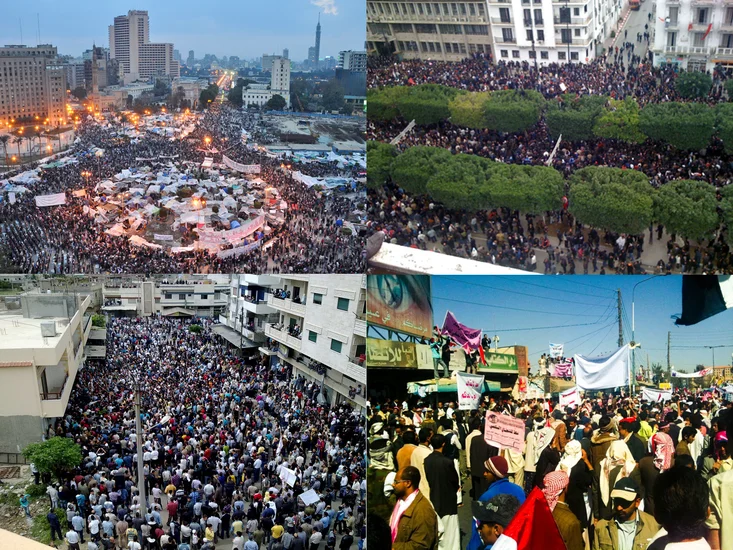
Anti-government protests erupted across Libya as the Arab Spring movement reached the North African nation, challenging Muammar Gaddafi’s four-decade rule. The demonstrations marked the beginning of Libya’s violent civil war and eventual regime change.
The protests quickly spread from Benghazi to other major cities, facing brutal suppression from government forces. International intervention would eventually help topple Gaddafi’s regime, though Libya’s political stability remained elusive.
Business and Economic Events on February 17
1972 – Volkswagen Beetle Achieves Historic Sales Milestone

Cumulative sales of the Volkswagen Beetle officially exceeded those of the Ford Model T, marking a pivotal moment in automotive history. The achievement demonstrated the global appeal of German engineering and the car’s enduring popularity across diverse markets.
The milestone represented decades of consistent production and international expansion by Volkswagen. The Beetle’s success story showcased how innovative design and reliable performance could create lasting commercial success in the competitive automotive industry.
1996 – Major Earthquake Strikes Indonesian Papua
An 8.2 magnitude earthquake devastated Indonesia’s Papua province, followed by a massive tsunami that killed 166 people and injured 423 others. The natural disaster highlighted the region’s vulnerability to seismic activity and the economic impact of such catastrophes.
The earthquake caused widespread infrastructure damage and disrupted local economic activities for months. Recovery efforts required significant international assistance and demonstrated the importance of disaster preparedness in seismically active regions.
1959 – Turkish Airlines Crash Near Gatwick Airport
A Turkish Airlines Vickers Viscount crashed near Gatwick Airport, killing 14 passengers and crew members while Turkish Prime Minister Adnan Menderes miraculously survived. The tragedy shocked the aviation industry and raised questions about flight safety protocols.
The crash highlighted the risks of international air travel during the early jet age. Menderes’s survival became a significant political event, as his continued leadership would shape Turkey’s development throughout the 1950s.
Transportation and Infrastructure on February 17
1991 – Ryan International Airlines Flight 590 Crashes

Ryan International Airlines Flight 590 crashed during takeoff from Cleveland Hopkins International Airport, killing both pilots who were the aircraft’s only occupants. The accident highlighted safety concerns in charter aviation operations.
The crash prompted investigations into pilot training standards and aircraft maintenance procedures. The tragedy underscored the importance of stringent safety protocols in all aviation operations, regardless of flight size or passenger load.
1966 – Aeroflot Flight 065 Crashes at Sheremetyevo

Aeroflot Flight 065 crashed during takeoff from Moscow’s Sheremetyevo International Airport, killing all 21 people aboard. The disaster marked one of the deadliest aviation accidents in Soviet history and prompted safety reforms.
The crash investigation revealed critical flaws in Soviet aviation safety standards and training procedures. The tragedy led to significant improvements in pilot training and aircraft maintenance protocols throughout the Soviet airline industry.
1996 – Massive Earthquake Devastates Indonesian Infrastructure
The 8.2 magnitude Biak earthquake severely damaged transportation infrastructure throughout Indonesia’s Papua province, disrupting vital supply chains and communications. The disaster demonstrated the vulnerability of remote island communities to natural catastrophes.
Roads, bridges, and port facilities suffered extensive damage, isolating affected communities for weeks. The earthquake highlighted the critical importance of robust infrastructure design in seismically active regions and the need for emergency response capabilities.
Sports and Recreation on February 17
1980 – Historic Winter Everest Ascent
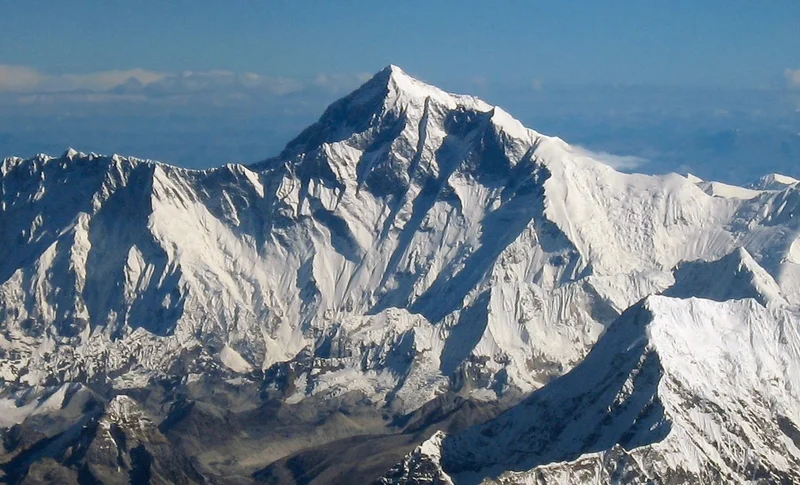
Polish mountaineers Krzysztof Wielicki and Leszek Cichy completed the first successful winter ascent of Mount Everest, achieving one of mountaineering’s most challenging feats. The extraordinary accomplishment pushed the boundaries of human endurance in extreme conditions.
The climbers faced brutal temperatures reaching -40°F and hurricane-force winds exceeding 100 mph. Their success established new standards for extreme altitude mountaineering and inspired countless future expeditions to attempt similar winter challenges.
1996 – Kasparov Triumphs Over Deep Blue
World chess champion Garry Kasparov defeated IBM’s Deep Blue supercomputer in Philadelphia, preserving human supremacy in the ancient game. The victory demonstrated that human creativity and intuition could still overcome pure computational power.
The match attracted global attention and sparked debates about artificial intelligence capabilities in strategic thinking. Kasparov’s triumph temporarily maintained human dominance in chess, though subsequent matches would prove more challenging.
2015 – Deadly Stampede at Haiti Mardi Gras
A catastrophic stampede at a Mardi Gras parade in Haiti killed 18 people and injured 78 others, transforming a joyous celebration into tragedy. The disaster highlighted the dangers of overcrowded public events and inadequate crowd control measures.
The stampede occurred when panic spread through the densely packed crowd during the traditional carnival celebration. The tragedy prompted calls for improved safety protocols and better crowd management at large public gatherings throughout the Caribbean region.
Notable Births on February 17
1903 – Sadegh Hedayat Born in Tehran
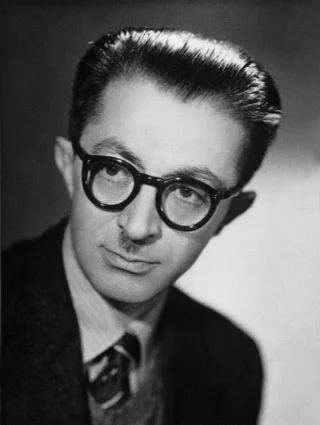
Iranian-French author and translator Sadegh Hedayat entered the world, destined to become one of the most influential Persian writers of the 20th century. His literary works would bridge Eastern and Western literary traditions.
Hedayat’s dark, psychological narratives explored themes of alienation and despair in modern Iranian society. His masterpiece “The Blind Owl” remains a cornerstone of Persian literature and influenced generations of Middle Eastern writers.
1924 – Margaret Truman Born in Independence, Missouri
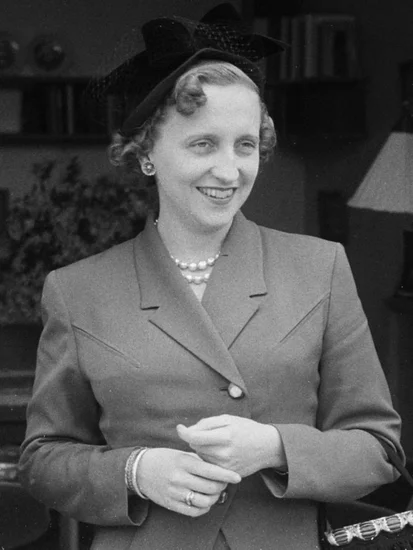
Margaret Truman, daughter of future President Harry S. Truman, was born into a political family that would shape American history. She would later establish her own career as a professional singer and bestselling author.
Truman’s unique perspective as a President’s daughter provided rich material for her later writing career. Her mystery novels and biographical works offered intimate glimpses into American political life and White House traditions.
1963 – Michael Jordan Born in Brooklyn, New York

Basketball legend Michael Jordan entered the world, destined to become arguably the greatest player in NBA history. His athletic prowess and competitive drive would transform professional basketball and global sports marketing.
Jordan’s six NBA championships with the Chicago Bulls established him as a transcendent sports figure. His influence extended far beyond basketball, revolutionizing athlete endorsements and establishing the modern sports celebrity template.
1974 – Jerry O’Connell Born in New York City

American actor and director Jerry O’Connell was born, beginning a career that would span television, film, and theater. His versatile performances would make him a recognizable face in American entertainment.
O’Connell’s early success in “Stand By Me” launched a diverse career encompassing comedy, drama, and hosting duties. His work demonstrated the evolution of child actors into successful adult performers in Hollywood.
1981 – Joseph Gordon-Levitt Born in Los Angeles

Actor, director, and producer Joseph Gordon-Levitt was born, beginning a career that would evolve from child stardom to serious filmmaking. His artistic vision would bridge traditional Hollywood entertainment and innovative digital media.
Gordon-Levitt’s transition from television actor to respected filmmaker demonstrated the changing landscape of entertainment careers. His creative projects often explored themes of technology, creativity, and human connection in the digital age.
1991 – Ed Sheeran Born in Halifax, England

Singer-songwriter Ed Sheeran entered the world, destined to become one of the most successful musicians of the 21st century. His acoustic guitar-based compositions would dominate global music charts and influence countless artists.
Sheeran’s humble beginnings busking on street corners evolved into stadium-filling concerts worldwide. His songwriting talents extended beyond his own performances, creating hits for numerous other major recording artists.
Notable Deaths on February 17
1909 – Geronimo Dies in Fort Sill, Oklahoma
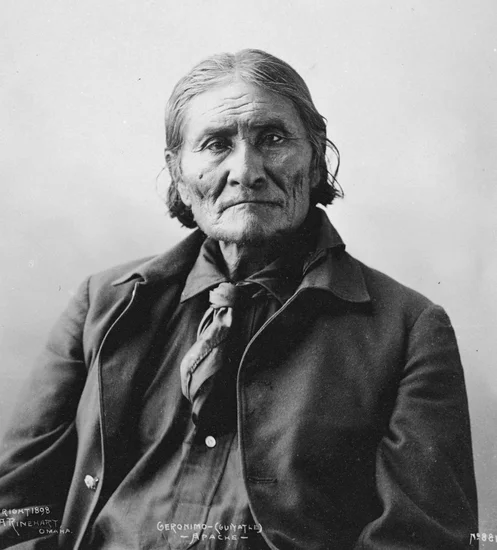
Legendary Apache leader Geronimo passed away at age 79, ending a remarkable life of resistance against American expansion. His death marked the symbolic end of Native American armed resistance in the Southwest.
Geronimo’s final years in captivity contrasted sharply with his earlier reputation as a formidable warrior. His death attracted national attention and cemented his legacy as one of the most famous Native American leaders in history.
1934 – King Albert I of Belgium Dies in Climbing Accident

Belgian King Albert I died tragically in a mountaineering accident, shocking the nation and international community. His sudden death ended a reign marked by courageous leadership during World War I.
Albert’s heroic resistance to German occupation during the Great War had made him a beloved figure throughout Europe. His unexpected death while pursuing his passion for rock climbing demonstrated the personal risks taken by even monarchs.
1982 – Thelonious Monk Dies in New Jersey

Jazz piano legend Thelonious Monk passed away at age 64, ending a revolutionary career that transformed American music. His innovative compositions and unique playing style had challenged conventional jazz harmonies and rhythms.
Monk’s angular melodies and complex chord progressions influenced generations of jazz musicians. His death marked the end of an era in jazz music, as one of the bebop movement’s most distinctive voices fell silent.
1982 – Lee Strasberg Dies in New York City
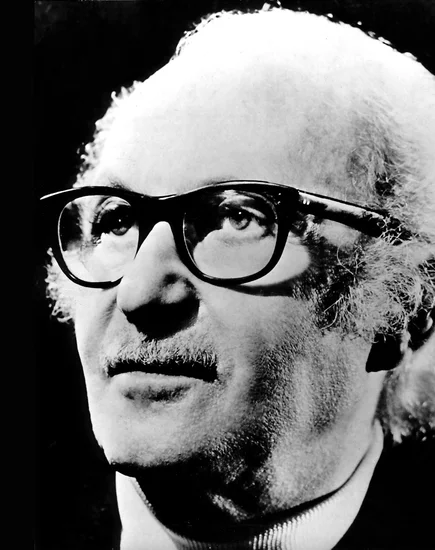
Acting teacher and director Lee Strasberg passed away at age 80, concluding a career that revolutionized American theater and film acting. His Method acting techniques shaped countless Hollywood stars and Broadway performers.
Strasberg’s influence extended far beyond his own performances to his teaching methodology at the Actors Studio. His death marked the end of an era in American acting instruction and theatrical education.
2021 – Rush Limbaugh Dies in Florida

Conservative radio host Rush Limbaugh passed away at age 70, ending a controversial career that transformed American political discourse. His nationally syndicated talk show had influenced conservative politics for over three decades.
Limbaugh’s provocative commentary and partisan viewpoints had made him both a beloved and polarizing figure. His death marked the end of an era in talk radio and conservative media influence in American politics.
Holidays and Observances on February 17
Independence Day in Kosovo
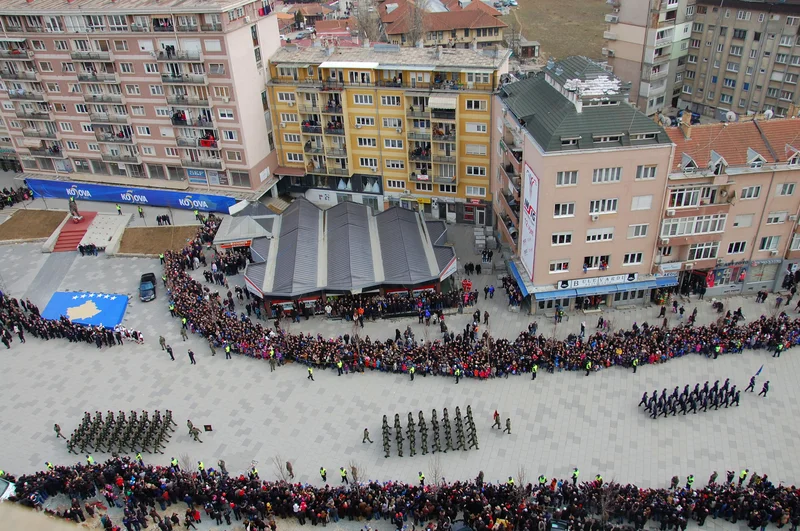
Kosovo celebrates its Independence Day on February 17, commemorating the 2008 declaration of independence from Serbia. The holiday represents the culmination of Kosovo’s struggle for self-determination and international recognition.
The observance includes official ceremonies in Pristina and cultural celebrations throughout the country. International recognition of Kosovo’s independence remains partial, making this holiday particularly significant for demonstrating national unity and sovereignty.
Revolution Day in Libya
Libya observes Revolution Day on February 17, marking the beginning of the 2011 uprising that led to the fall of Muammar Gaddafi’s regime. The holiday commemorates the start of the Arab Spring movement in Libya and the struggle for democratic governance.
The observance honors those who participated in the revolution and sacrificed their lives for political change. Despite ongoing political instability, the holiday remains an important symbol of Libya’s aspirations for democratic development and national unity.
Christian Feast Day of the Seven Founders of the Servite Order
The Catholic Church observes the feast day of the Seven Founders of the Servite Order, commemorating the 13th-century Italian merchants who established the religious order. The celebration honors their dedication to serving the Virgin Mary and their contributions to religious life.
The feast day includes special masses and prayers in Servite churches worldwide. The seven founders’ example of leaving worldly success to pursue religious devotion continues to inspire Catholics seeking deeper spiritual commitment and service to others.
